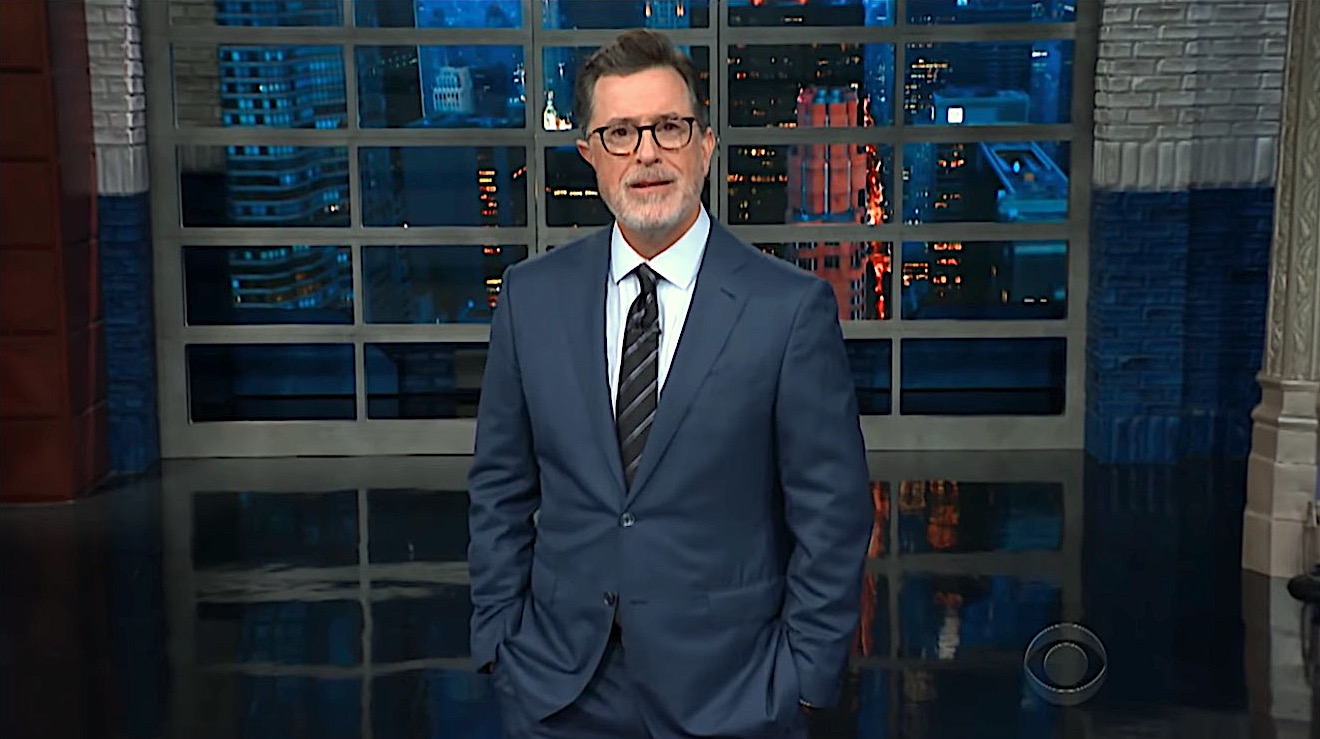Stephen Colbert has some fun with the idea of Brett Kavanaugh as an inveterate gambler


A free daily email with the biggest news stories of the day – and the best features from TheWeek.com
You are now subscribed
Your newsletter sign-up was successful
The Senate Judiciary Committee's hearings for Supreme Court nominee Brett Kavanaugh may be over, but senators can still submit questions in writing, and Sen. Sheldon Whitehouse (D-R.I.) used that opportunity to ask Kavanaugh if he has a gambling problem. "Remember, when his nomination was announced, we learned that Kavanaugh had incurred between $60,000 and $200,000 of credit card debt," Stephen Colbert said on Wednesday's Late Show. The White House said Kavanaugh was just buying baseball tickets, but "who spends that much money on baseball tickets?" Colbert asked, suggesting that Kavanaugh might have an alternative definition for "baseball."
That's not the only clue that points to gambling, Colbert said. In an email from 2001, Kavanaugh apologized for "growing aggressive after blowing still another game of dice." "Dice?" he asked. "Who plays dice? He's gonna be our first Supreme Court justice from the cast of Guys and Dolls." Colbert sang a bit of a modified version of "Luck Be A Lady" that creatively rhymed "roll back your rights" with "stare decisis." Whitehouse's gambling questions got pretty specific, Colbert noted, wondering what exactly happened in New Jersey.
On Wednesday, Kavanaugh responded to Whitehouse's questions, saying he has "occasionally played poker or other games with friends and colleague," recalls "occasionally visiting casinos in New Jersey when I was in school or in my 20s" and having "played low-stakes blackjack," but said he has not accrued any gambling debt. The Late Show still had some fun splicing some of his noncommittal confirmation hearing answers into a poker game, and you can watch that below. Peter Weber
The Week
Escape your echo chamber. Get the facts behind the news, plus analysis from multiple perspectives.

Sign up for The Week's Free Newsletters
From our morning news briefing to a weekly Good News Newsletter, get the best of The Week delivered directly to your inbox.
From our morning news briefing to a weekly Good News Newsletter, get the best of The Week delivered directly to your inbox.
A free daily email with the biggest news stories of the day – and the best features from TheWeek.com
Peter has worked as a news and culture writer and editor at The Week since the site's launch in 2008. He covers politics, world affairs, religion and cultural currents. His journalism career began as a copy editor at a financial newswire and has included editorial positions at The New York Times Magazine, Facts on File, and Oregon State University.
-
 Why is the Trump administration talking about ‘Western civilization’?
Why is the Trump administration talking about ‘Western civilization’?Talking Points Rubio says Europe, US bonded by religion and ancestry
-
 Quentin Deranque: a student’s death energizes the French far right
Quentin Deranque: a student’s death energizes the French far rightIN THE SPOTLIGHT Reactions to the violent killing of an ultraconservative activist offer a glimpse at the culture wars roiling France ahead of next year’s elections
-
 Secured vs. unsecured loans: how do they differ and which is better?
Secured vs. unsecured loans: how do they differ and which is better?the explainer They are distinguished by the level of risk and the inclusion of collateral
-
 ‘One Battle After Another’ wins Critics Choice honors
‘One Battle After Another’ wins Critics Choice honorsSpeed Read Paul Thomas Anderson’s latest film, which stars Leonardo DiCaprio, won best picture at the 31st Critics Choice Awards
-
 Son arrested over killing of Rob and Michele Reiner
Son arrested over killing of Rob and Michele ReinerSpeed Read Nick, the 32-year-old son of Hollywood director Rob Reiner, has been booked for the murder of his parents
-
 Rob Reiner, wife dead in ‘apparent homicide’
Rob Reiner, wife dead in ‘apparent homicide’speed read The Reiners, found in their Los Angeles home, ‘had injuries consistent with being stabbed’
-
 Hungary’s Krasznahorkai wins Nobel for literature
Hungary’s Krasznahorkai wins Nobel for literatureSpeed Read László Krasznahorkai is the author of acclaimed novels like ‘The Melancholy of Resistance’ and ‘Satantango’
-
 Primatologist Jane Goodall dies at 91
Primatologist Jane Goodall dies at 91Speed Read She rose to fame following her groundbreaking field research with chimpanzees
-
 Florida erases rainbow crosswalk at Pulse nightclub
Florida erases rainbow crosswalk at Pulse nightclubSpeed Read The colorful crosswalk was outside the former LGBTQ nightclub where 49 people were killed in a 2016 shooting
-
 Trump says Smithsonian too focused on slavery's ills
Trump says Smithsonian too focused on slavery's illsSpeed Read The president would prefer the museum to highlight 'success,' 'brightness' and 'the future'
-
 Trump to host Kennedy Honors for Kiss, Stallone
Trump to host Kennedy Honors for Kiss, StalloneSpeed Read Actor Sylvester Stallone and the glam-rock band Kiss were among those named as this year's inductees
